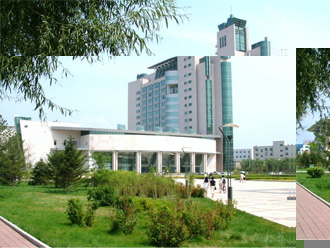- Department of Economics
- World Economic Research Institute
- Regional Economic Research Institute
- Institute of Population Resources and Environment
- Institute of International Politics
- Institute of History and Culture

The predecessor of the World Economic Research Institute is the Institute of Economic Research of the Northeast Asian Studies College. Its history can be traced back to the Japanese Studies Research Institute and the Korean Studies Research Institute of Jilin University approved by the State Council in 1964. In September 2001, according to the disciplinary needs of construction and development, the Northeast Asia Studies College re-integrated the economic research forces of the former Institute of Japanese Studies, the Korean peninsula studies Institute, the Russian Studies Institute and the Regional Economic Research Institute to form an institute of economics. In May 2003, in order to further strengthen research on the world economy and regional economic issues in Northeast Asia, the World Economic Research Institute was established.
Sticking to the traditional advantages of Jilin University in economic research of Northeast Asian countries, and constantly improving the disciplinary system, the Institute has formed four stable research directions of the Japanese economy, the Korean Peninsula economy, the Russian economy and the Northeast Asian regional economy. There are 14 full-time researchers in the Institute, including 7 professors (6 of them being doctoral supervisors), 5 associate professors and 2 lecturers. Since its establishment, the Institute has published more than 20 academic monographs and more than 300 academic papers. It has carried out over 30 projects, including 3 national social science fund projects, 4 major projects of the Humanities and Social Sciences Key Research Base of the Ministry of Education, and 3 other projects of the Ministry of Education.
The Institute started to have the master's degree program in world economics in 1979 and the doctoral degree program in 1990. There is a post-doctoral research station for theoretical economics, forming a complete high-level personnel training system from master's degree to doctoral degree to post-doctoral. There are 160 graduate students, including more than 90 doctoral students.
The international academic exchange activities are very active. The Institute has established extensive cooperation and exchanges with peer universities and research institutes in Japan, North Korea, South Korea, the United States, and Russia.



